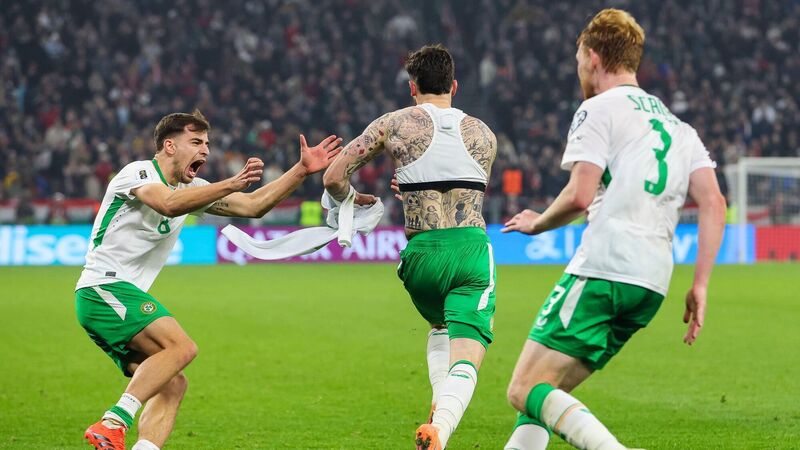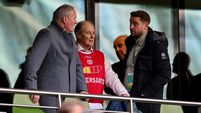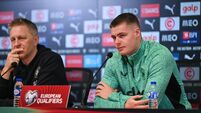Ireland’s big moment is what World Cup qualifying is all about

CATCH ME IF YOU CAN: Jayson Molumby runs to celebrate with Troy Parrott after the striker's third goal of the game delivered a precious win for Ireland. Photo: ©INPHO/Ryan Byrne
Last Thursday, Irish football was in a bleak place.
They had two games remaining in World Cup qualifying and apparently no hope of making it to North America next summer. Another campaign had collapsed in predictable ways: they couldn’t score, they made bafflingly simple errors, too few of their players play for elite sides and those that do seemed unable to reproduce club form for their country.













